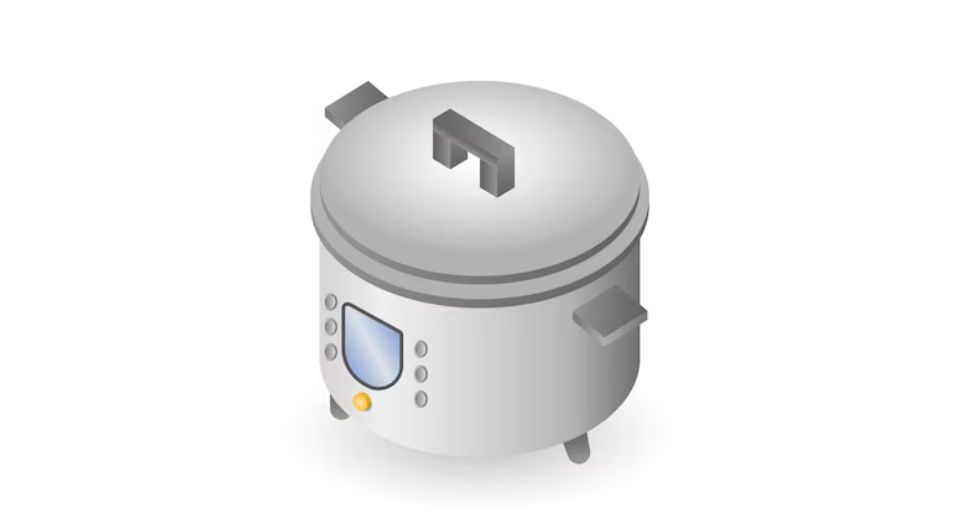
Nov 12, 2024

Metastat Insight talks about the Europe multicooker market, which has undergone tremendous growth across almost all associated segments. The reason for this scenario is due to a change in preference among the customers and new product launches in the market. The market of multi-cookers has been steady-growing as it not only prepares meals but also serves them in multifunctional capabilities. In the past few years, more and more European households have been adopting these versatile appliances. They have preferred products that conserve them time and energy and align with a desire for healthier homemade meals. The trend reflects the evolution of modern lifestyles in Europe, where consumers are constantly striving to couple comfort with quality and nutrition within the cadences of their lives. Situated at the heart of this revolution is the multicooker itself: a product that brings together, into one, a variety of cooking functions, allowing users to steam, pressure cook, sauté, or slow cook at their convenience, all in just one machine.
This flexibility has attracted not only busy people but also those who want to simplify the number of appliances they may have to use in the kitchen. This has transformed the European consumer's consumption patterns of using single-purpose appliances, hence creating a climate where creativity and convenience coexist in the kitchen. In point of fact, the practical appeal of multicookers has proved especially appealing to urban dwellers who have limited or small kitchen space, since they require compact multi-functional tools that could help them manage their meal preparation in an efficient manner. Other drivers of interest in European consumers to the market for multicookers include recent advances in smart technology, which have become recent go-to-technology trends for manufacturers trying to create different units.
For instance, smart multicookers can be fitted with Wi-Fi and mobile applications to control cooking via a smartphone, new recipe retrieving capabilities, or when food is cooked. This gentle transition to food preparation has caught the attention of tech conscious consumers who enjoy monitoring their cooking process and adjusting them without necessarily being in the kitchen. Other features like pressure control and auto-shutoff also attract consumers because they have to balance the convenience and safety of the products they are choosing. The diversity in the European market is not merely on technology-driven features, but rather cultural preferences also play a significant role in forming demand for certain cooking functions.
Multicookers with the localized functions relevant to traditional dishes offered by the different regions of Europe have become favorites because they adhere to localized practices. For example, there are markets in which the demand for rice-cooking or yogurt-making models is much higher. Slow-cooking facilities would be more appealing to people looking for that fall-off-the-bone meal that is synonymous with heavy European cuisine. The ability to accept both traditional and modern methods of cooking is, therefore, core to catching the diverse preferences that define the European market. Consumer demand for green and energy-saving appliances within the European multicooker market is also motivated by the growing awareness over environmental issues and green policies implemented across the European continent.
Increased energy-awareness amongst European households has encouraged people to buy appliances that can offer several cooking functions in one unit so that electricity consumption as well as wastage in the kitchen reduces. Manufacturers have countered by including energy-efficient designs and materials in the product, appealing to a customer base that values sustainability in conjunction with functionality. The trend thus also fits in with more generalized European goals for a more sustainable lifestyle. Here, it directly resonates with the sensitive eco-conscious consumer who is not interested in the immediate benefits of a multicooker but also in what this will do long-term to the environment. Another critical element within the market lies in price.
Although one part of consumers in Europe is prepared to pay extra money for the high-quality appliances, the majority remains who want to have a budget-friendly multicooker yet reliable. Therefore, competition on the market called manufacturers to make a whole range of different multicookers that are well-suited almost to every budget, including budget models with more or less basic functionality and more expensive ones who are equipped with rather sophisticated settings and good materials. This leaves the multicookers affordable for every demographic through offering different options at various price points. The retail landscape of multicookers has also evolved in Europe, since people now increasingly buy their products both offline and online.
A wider choice, easier accessibility due to comfort of home purchases, and more comprehensive customer reviews have been significant factors in determining purchase decisions. European consumers, for instance, surf the internet and compare various multicookers before buying them, while main considerations include brand reputation, reviews, and functions. Due to e-commerce, entering this space has been easier for newer and smaller brands. This leads towards more intense and innovative competition with an increased struggle to be noticed in a more congested market. Going forward, the European multicooker market will continue to transform, as revealed by Metastat Insight, based on technological, cultural, and sustainability factors.
Indeed, as consumers increasingly seek multi-functional, energy-efficient appliances, there are opportunities for manufacturers to capture demand for products that live up to modern, conscious living. A strong market is therefore promising, with multicookers firmly anchored into European homes, representing convenience and versatility that really resonate with today's consumer.
Drop us an email at:
Call us on:
+1 214 613 5758
+91 73850 57479